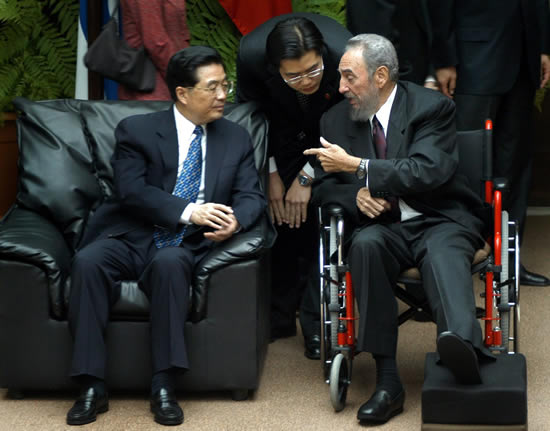In recent weeks, representatives of the People’s Republic of China (PRC) have complained of America’s “Cold War mentality.” The rhetoric is in reaction to President Obama’s recent swing through the Pacific and particularly his announcement in Australia of a sustained rotation of aircraft and up to 2,500 Marines through northern Australia.
This rhetoric is nothing new. The Chinese often dismiss America’s system of alliances in Asia as “relics” of the Cold War. They have apparently found it a handy talking point in a region that is as dynamic as East Asia is today. Political leaders, government officials, and businessmen there generally like to think of themselves as forward-looking, throwing off the ways of the past, opening the way to prosperity and progress.
Of course, neither America’s forward-deployed military nor its system of alliances is a relic of the past. America is a Pacific nation. Its historic presence in the Western Pacific in particular serves the purpose of peace and stability from which no nation benefits more than the PRC itself.
But for some perspective on Chinese complaints—as long as we’re on the topic of Cold War mentality—it’s worth recapping the close relationship that the PRC nurtures with one of the world’s other remaining communist dictatorships, Cuba.
No less than the General Secretary of the Chinese Communist Party himself, Hu Jintao, has visited Cuba twice in his almost nine years as President. In his 2004 “fraternal and friendly visit,” he oversaw the signing of 16 cooperation agreements in areas of economics, trade, science, technology, and cultural ties.
In 2008, when Hu met the frail and addled Fidel Castro, the Chinese news service Xinhua paraphrased Hu as follows: “Hu said that as the founder of the Cuban socialist revolution and construction, Castro is dearly adored by the Cuban people. During the past half century, Castro led the heroic Cuban people in their fearless struggle to safeguard state sovereignty and adhere to the path of socialism, thus winning respect from people worldwide, including the Chinese people.” Xinhua then quotes Hu directly: “Your [Fidel’s] thoughts and experience will surely guide the Cuban people to continue their march on the road of socialist construction.” Needless to say, many of us in the U.S., including the thousands who have managed to escape Castro’s “paradise,” don’t take much comfort in that.
China’s future party secretary (and by extension President) Xi Jinping visited Cuba just this past June to “increase friendship and deepen cooperation” and sign an additional 13 agreements.
President Hu, and Xi Jinping are welcome to visit Cuba. But spare us the spin when the U.S. President or cabinet secretaries tour through the Pacific and tend to America’s alliances there. America’s alliance with Australia is far more forward-looking than China’s fraternity with the decrepit communist dictatorship in Cuba.
